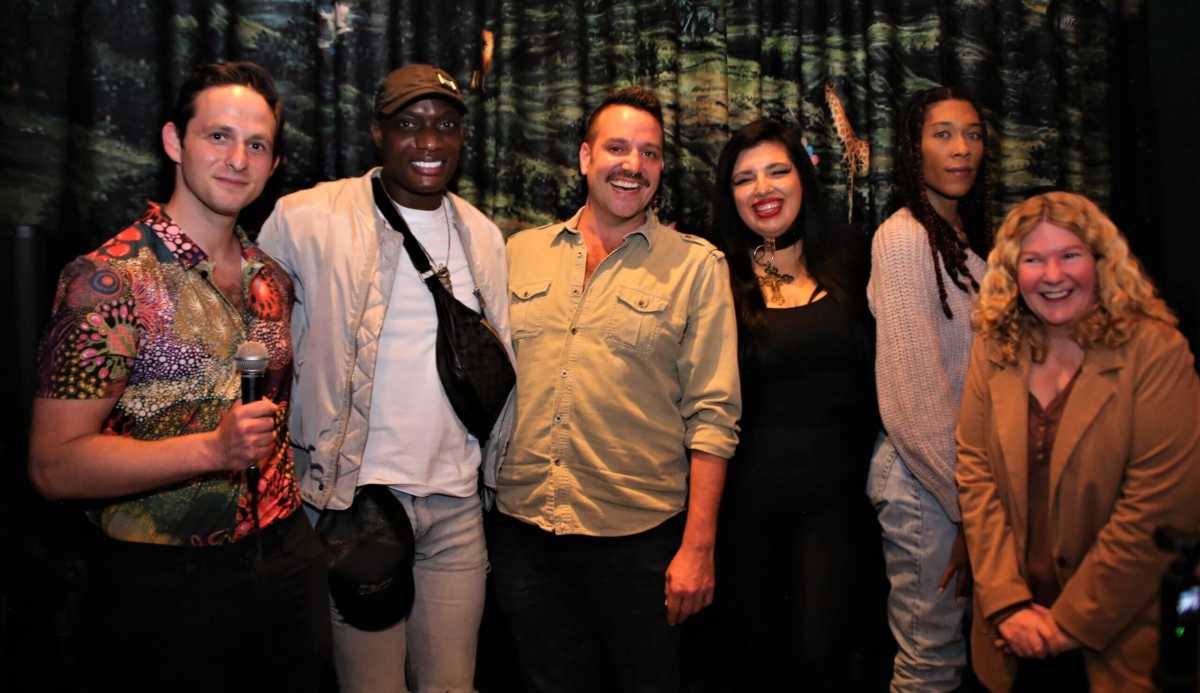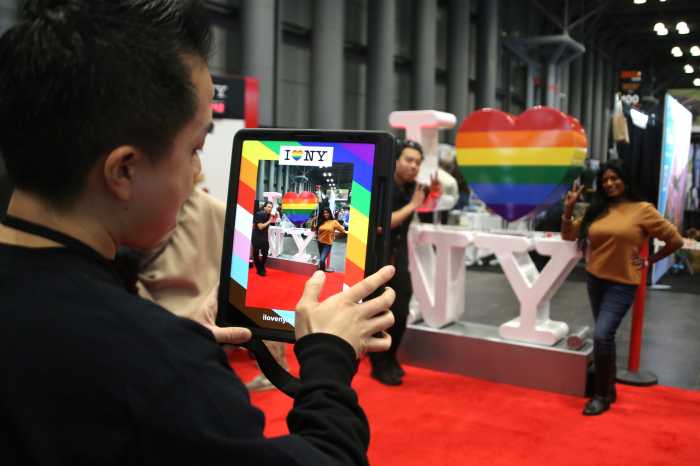Curious about important themes in LGBTQ+ travel and recent travel trends? What’s an exciting place to visit? Where do queer people have to be a little more careful? A diverse group of speakers made of activists, influencers, journalists and others on the LGBTQ+ spectrum gathered for a panel to discuss these and other issues at the Moxy Chelsea Hotel on Wednesday, May 24.
The event was opened by Stacy Lentz, the CEO and co-founder of The Stonewall Inn Gives Back Initiative, the charitable organization of The Stonewall Inn, who helped fund the discussion. She mentioned that there is a strong vetting certification program that the Initiative uses whenever partnering with companies so that there is no rainbow washing. Approximately 20 people attended the event, held in an intimate space with an almost cabaret atmosphere adjacent to the hotel’s Bar Feroce.
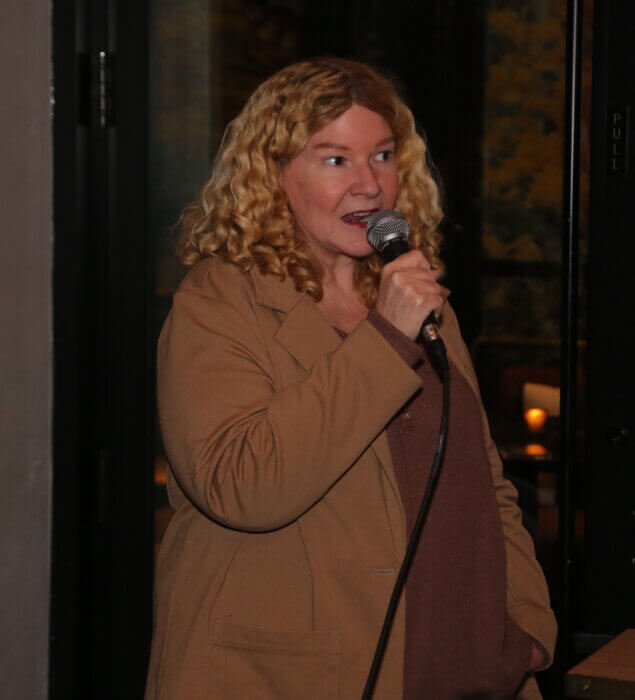
Moderating the panel was Brandon Berkson, founder of Hotels Above Par, a website reviewing luxury hotels. The four panelists were Ravi Roth of the travel website Ravi Around the World; Dayna Troisi, the managing editor of Go Magazine; Jahlove Serrano, a multi-hyphenate who describes himself on his Instagram as a “health educator, AIDS activist, and youth advocate, background dancer, choreographer, androgynous model, and drag queen”; and Aniyah Evelyn Santos Ortiz, who works for The Ali Forney Center and spoke about her travels as a transgender, Puerto Rican activist.
The first question from Brandon for the panelists was to speak on where “you didn’t feel safe when you were traveling because of being part of the LGBTQ+ community.”
Serrano prefaced his answer by explaining that as a Black man with HIV, he is aware that any place can be a risky one, including for microaggressions.
“I’m minding my P’s and Q’s and making sure I’m not being aggressive,” Serrano said. “But as an activist and advocate, I’m always looking for a fight at the same time.” He emphasized, for example, being fully aware of his rights when checking into a hotel.
He continued by talking about a recent trip to Morocco, which he said marked “the first time I’ve ever been to a country where they criminalize homosexuality.” Serrano mentioned layering protection while traveling through the North African country by code-switching, not wearing nail polish and removing earrings. There are numerous countries where it is illegal to be gay, he reminded the audience, explaining “there’s a lot of places to go that you can feel unsafe, but I think it’s really important for us to be visible to show up.”
Troisi acknowledged coming “into this experience with a great deal of privilege as a Sicilian American, as a white woman,” though she also touched on her disability — she is missing an arm and has what she describes on her website as a “badass bionic arm.” Still, she mentioned degrees of discomfort and awkwardness, referring to “small moments that any queer person across any sort of intersection would definitely understand.”
Perhaps the most troubling story came from Evelyn, who described a delayed luggage issue flying from Miami to LaGuardia. The travel hiccup began without any further issues, but began to shift into strong disagreements and miscommunication.
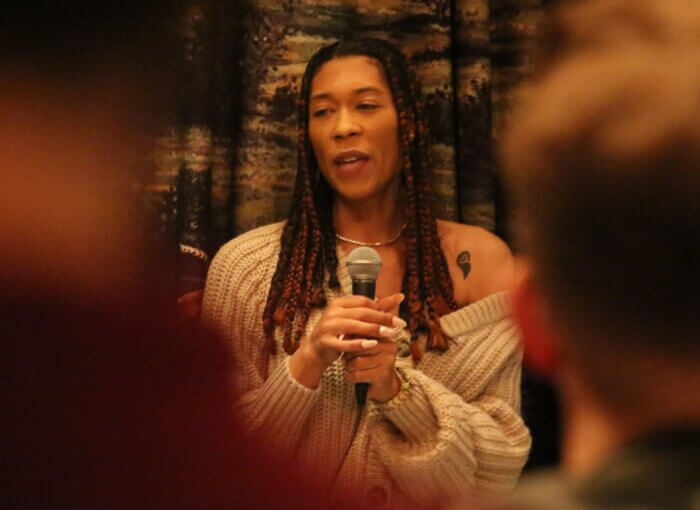
“The first thing that they did was attack my gender,” Evelyn said. “And at that very moment, I felt reduced to nothing. I was traumatized, and my anxiety heightened. So, I felt unsafe, and I know where this could have led to. So, what I did was I called security, and I called law enforcement.”
She said they tried to restrict her from future flights, but they backed down “because I had videos, and documentation that I was able to note down.” Through this and an ensuing investigation, she added, “they were able to find those allegations to be false.”
There were often pleasant experiences in LGBTQ+ majority spaces.
“I love to find the gay everywhere I go,” said Roth, who mentioned Axel Hotels, a gay-friendly chain headquartered in Spain. He added that he and his partner, “ always look for a LGBTQ+ friendly restaurant or a club to go to and that’s kind of our way of delving into the LGBTQ community in places that we visit.” Troisi had similar experiences, stating that when traveling with her non-binary partner, “a lot of the places I travel are very gay friendly. So, I’m lucky.”
The panel transitioned into what those within the travel industry should know about the LGBTQ+ traveler. The idea that there was no one size fits all was immediately apparent. Serrano emphasized that “not all LGBTQ identified spaces are safe for Black people, Black queer people. You know, there’s a long history why you have to have Black Prides.” He mentioned the importance of music selection, outreach, and of speaking to the security and the DJs and their reactions to people of color as an indicator of how safe a space is. Consistent training was also key, Serrano said, and not just during Pride Month.
“You train everybody and you consistently train them because the information of the LGBTQ+ community always [changes],” he said, recounting a misgendering of his transgender aunt at a hotel in Amsterdam during that city’s pride event.
Seemingly small gestures go a long way, according to Troisi, who mentioned, “I would definitely want to know that we just want to feel safe, whether that’s a gender-neutral bathroom, or maybe like a pin that you’re wearing. That’s like a rainbow flag or something like that. And it’s really, really small things that make a big difference.”
Where to go and favorite places were also discussed, with cities like Atlanta, Stockholm, Madrid, and Paris mentioned. Troisi told of her surprise on a recent trip to Kansas City, telling the audience, “I was very impressed. I had not been to that part of the midwest before. And it was a very, very affirming place.” Troisi, a Long Island native, also mentioned Fire Island, calling it “this weird queer utopia, where it’s not just that queerness is accepted. It’s honored and celebrated. It’s the norm we’re the majority there and it’s such a beautiful, majestic place.”
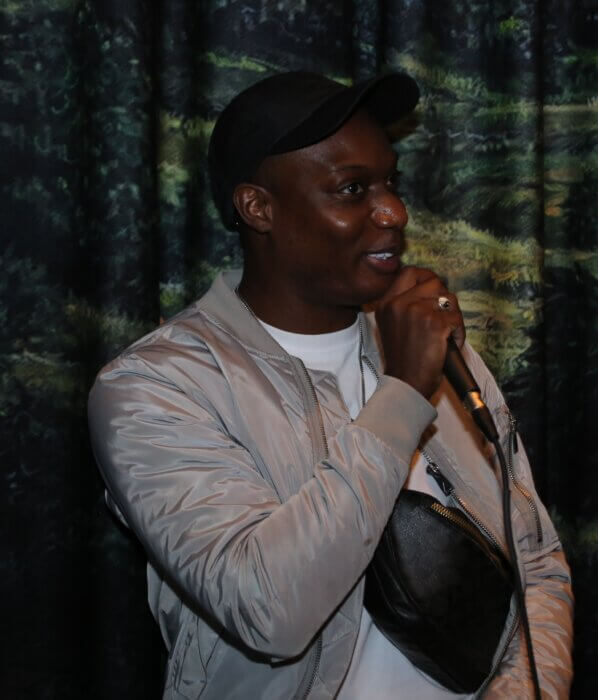
In contrast though, Serrano mentioned that “Fire Island can be hit or miss” for queer people of color. He discussed how, for example, Black Pride on Fire Island no longer happens.
All of the speakers were enthused about the idea of representation and being out, even under difficult circumstances. And for the speakers, this meant a variety of identities.
Troisi explained that this applied not just to travel, but to everyday living, giving the example as a person with a disability. She recounted having been a camp counselor where “there was a little girl from Russia who had one arm just like me. And she couldn’t fathom that I was just, like, out here, you know. She always wore long sleeves and covered up her amputation. And it was lost on me at first how kind of valuable it was for her to me. And the closer we got, I realized that I was really making a difference in her life, which was really, really humbling and special to me. I just want to say that that goes for anyone here — just being your true and authentic self, whatever that is, in any space that you’re in. You don’t know whose life you’re going to touch.”
Whether in travel or in other aspects of how LGBTQ+ people go about their lives, Troisi said “just our presence can really change someone’s life.”
Despite the sense of progress many pointed out, in closing out the event, Lentz mentioned that the current situation in Florida means that their partner company, JetBlue, had to relabel their diversity training, calling it “Your Customer Base.”
“That’s how crazy times are right now,” she added.

